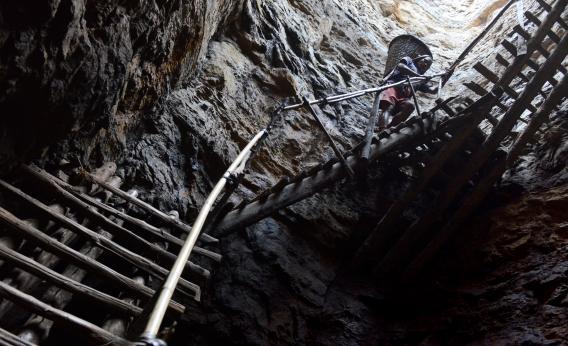The severe problems with 401(k) plans as a policy tool for bolstering middle class retirement funds are increasingly well known. In some quarters that’s led to enormous nostalgia for the good old days of defined benefit pensions, but old-style pensions also have severe problems. Brad Plumer writes about the case of mine workers who toiled for years sacrificing current pay for promises of generous pension and health benefits in retirement only to find their former employers facing bankruptcy as the industry heads into structural decline. Maybe they’ll get lucky and the government will bail them out, but without a nice bailout they’re going to get screwed.
And this is a pretty profound problem. If you’re 45 and negotiating with an employer (or your union rep is negotiating on your behalf) who’s making promises about money you’re going to be paid 30 years in the future, then it’s cheap talk to make you a generous offer. The executive has no way of knowing what the state of the business will be at that time.
Which is all just to say that Social Security is a really good idea and it’s foolish to be talking about across-the-board cuts in the program. By definition, half of seniors are getting by on more than the median benefit so obviously the republic could survive some amount of additional progressivity. But a large share of seniors are getting by on extremely meager benefits under the current system, and enhancing the bottom-end benefits ought to be an important priority. Social Security-type schemes aren’t perfect, but the government has some unique virtues as a source of pensions—it lives forever and it can’t “go bankrupt”—so all the alternatives to a government-provided pension ultimately end up relying on implicit government backstops and tax subsidies to try to work.
